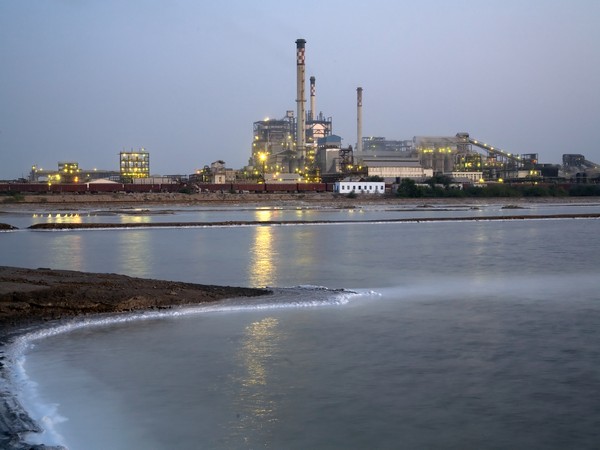Need to add food and water along with energy to tackle climate change, says Tata Chemicals MD
To address the challenges regarding climate change, there is a need to look at the issues such as water and food along with energy, Tata Chemicals Managing Director R Mukundan said.Besides, there is also a need for a very clear regulatory framework across the countries to tackle challenges and adopt the best practices adopted globally, said Mukundan on Saturday while virtually participating in a panel discussion on Climate in the EU-India Business roundtable.

- Country:
- India
To address the challenges regarding climate change, there is a need to look at the issues such as water and food along with energy, Tata Chemicals Managing Director R Mukundan said.
Besides, there is also a need for a “very clear regulatory framework” across the countries to tackle challenges and adopt the best practices adopted globally, said Mukundan on Saturday while virtually participating in a panel discussion on Climate in the EU-India Business roundtable. “Its nexus of food, energy and water. It's not only the energy issue but we must include water issue and food issues and then we should look into the holistic solutions for climate change,” he said.
He also stressed the need to add two elements for the businesses to be more successful - circularity, whether the circular economy should bring at the centre of the strategy and also extend the boundaries of the business to fence biodiversity. “Though in India there is discussion around growth versus sustainability, there is debate around climate justice but most of… we are no longer sitting on the issue of climate justice. Every country and company has to contribute and move forward and technology is available,'' Mukundan added.
He also highlighted that India has a large number of MSMEs and helping them with the transition as done in other countries as the US and Europe.
“Exchanging the best practices and the policies will be very critical as India embarks on the next wave of transition to a zero-carbon economy,” said Mukundan.
While, ITC Chairman and Managing Director Sanjiv Puri, who was also participating in the panel discussion highlighted the role of agriculture and said there is a need to collaborate on the best practices and financing it.
Puri suggested a partnership between Indian and the EU for the development of the agricultural sector.
“This partnership holds a lot of promise. On the supply side and we know what to do. We need to implement climate-smart agriculture and we have implemented that scale in 16,000 villages and we have got gas condition reduction of 45 per cent and farmers income has gone up by 35 per cent,” he said.
This has also helped to address social equity also, Puri added.
“On the demand side, we need to manage agriculture more collaborative as the industrialised world does. It is very transactional today bringing lots of inefficiency and wastage. We need to also look at the diet patterns more sustainable,” he said.
Farmers are small and they are exposed to a lot of risks associated with the transition from traditional to climate-smart agriculture.
“There are resources, which the farmers will require to buy the equipment and tools. Finance and derisking instruments and incentivisation of this transition, are critical components,” he said.
According to him, India has a huge amount of degraded lands and nearly 25 to 30 million hectares are available, in which biodiversity can be restored.
(This story has not been edited by Devdiscourse staff and is auto-generated from a syndicated feed.)
- READ MORE ON:
- Sanjiv Puri
- India
- Puri
- Tata Chemicals Managing
- Europe
- Mukundan
- Indian
ALSO READ
Senior US treasury officials to urge India to maintain implementation of Russian oil price cap
Indian Navy hands over nine pirates to Mumbai Police
Pakistan Volleyball Federation invites India for tournament in Islamabad
Senior US treasury officials to urge India to maintain implementation of Russian oil price cap
"Because of Hockey India's support, I am able to help my family": Salima Tete after winning Player of the Year award










